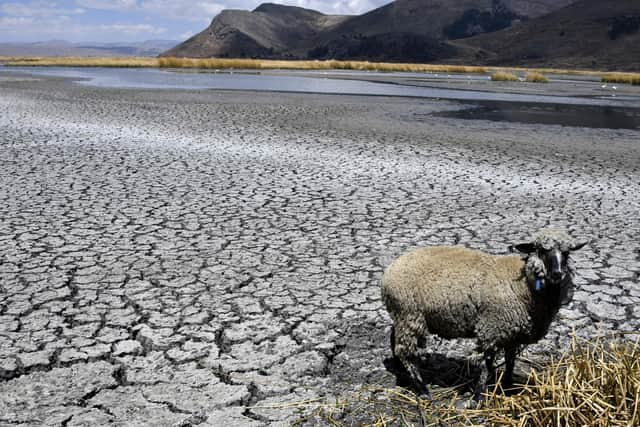COP28 climate change summit: How major oil producers are preventing world from kicking its fossil fuel habit – Dr Richard Dixon
COP28, this year’s United Nations climate talks in Dubai, has been providing an object lesson about the power of the oil industry and oil-producing countries to scupper attempts to tackle global warming in a serious way.
While progress has been made in some areas, most noticeably the establishment of the loss-and-damages fund to help countries deal with irreversible changes brought about by climate change, the core issue of phasing out fossil fuels has proved as difficult as expected, with the phrase disappearing from the draft text on Monday.
Advertisement
Hide AdAdvertisement
Hide AdIn the final hours of COP26 in Glasgow two years ago, an agreement was reached that there should be a “phase down” of coal and fossil fuel subsidies – very weak language but it was the first time in 26 UN climate talks that fossil fuels actually got mentioned in the final agreement.
As global temperatures continue to smash records, there is a very urgent need to act together to reduce emissions, but expectations for COP28 were always low. It is being hosted by the United Arab Emirates, one of the world’s largest oil producers, and they chose as the leader of the process Sultan Al Jaber – also chair of the Abu Dhabi National Oil Company. His company plans to expand oil production by as much as 42 per cent by the end of this decade.
In the run-up to the COP, it was revealed that UAE negotiators had been briefed to pursue new oil deals during climate negotiations, targeting 15 specific countries. Al Jaber himself was quoted as saying there was no scientific evidence that phasing out fossil fuels was essential to keeping below the 1.5C temperature threshold, a sentiment immediately condemned by climate scientists. During the COP, a leaked letter from oil cartel Opec urged its members to resist any moves to phase out fossil fuels.
The oil industry has turned up to lobby in a big way. With a record 2,500, there were more fossil fuel lobbyists than delegates from any single country except the hosts UAE and Brazil, who are hoping to host COP30. As well as trying to exclude any mention of “phasing out” from the text, they are also telling delegates that they needn’t worry about those pesky carbon emissions because carbon capture and storage will take care of them all. The head of the International Energy Agency recently added his voice to those opposing this strategy, saying that planning to use carbon capture to cover business-as-usual emissions is a “fantasy”.
There are at least 100 countries arguing for a phase-out of fossil fuels. The EU, Australia and the grouping of small island states have been leading the charge, also calling for global emissions to peak by 2025. Even the UK is saying some of the right things (despite its plans to open 100 new oilfields in the North Sea). Saudi Arabia and Iraq are the main visible blockers.


The world needs to urgently get off its fossil fuel addiction. While oil industry interests continue to skew the debate and oil-producing countries hold power, there is little chance of change.
Dr Richard Dixon is an environmental campaigner and consultant
Comments
Want to join the conversation? Please or to comment on this article.